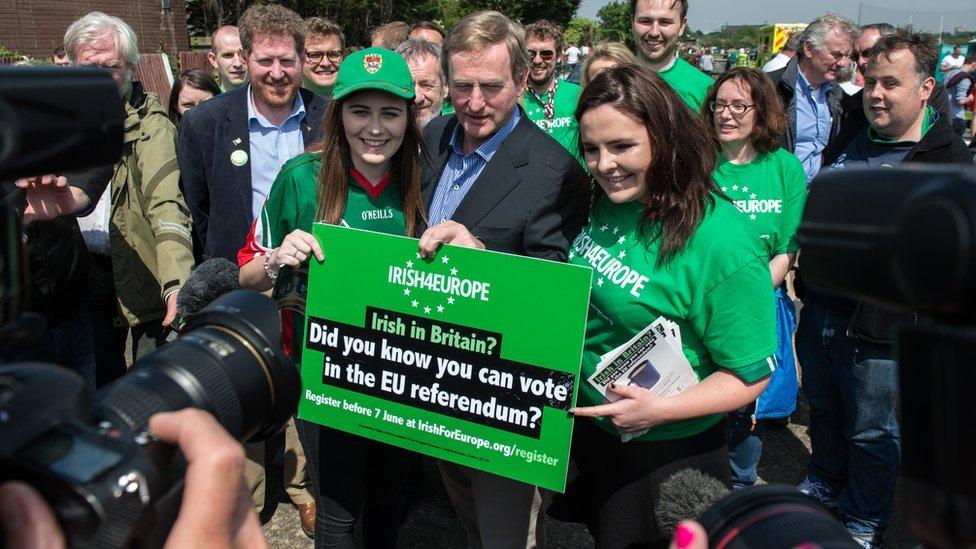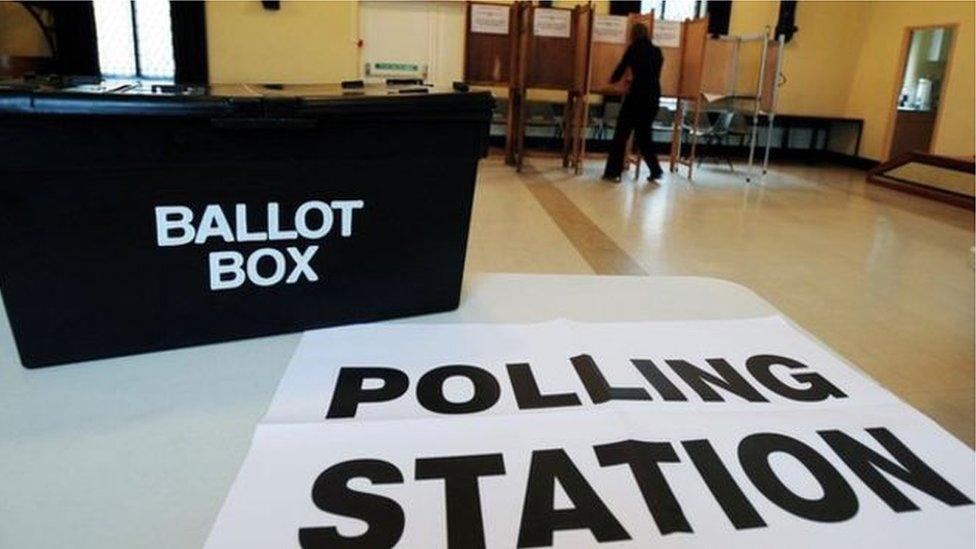EU referendum: Irish citizens away from home to have their say on Brexit
- Published

Irish citizens will get a say in the EU referendum - so long as they're UK residents and have registered to vote.
Most European Union (EU) nationals won't get a say in the upcoming EU referendum.
But a long-standing arrangement between the Republic of Ireland and the UK means the Irish will.
They'll join British citizens at the polls on 23 June - so long as they're UK residents and have registered to vote.
It's a reciprocal relationship - British citizens can vote in Ireland when they hold national elections.
Other EU nationals, who have come to live in Great Britain, won't get to vote. But EU citizens from Commonwealth countries - such as Malta and Cyprus - can vote if they live in the UK.

Irish Prime Minister Enda Kenny visited London to campaign
The big question is whether the UK should stay in, or leave the EU - and it's a hotly contested issue.
Irish Prime Minister Enda Kenny made the trip to London on May 30 to encourage Irish people living there to get involved with the referendum.

Irish citizens will get a say in the referendum - so long as they're UK residents and have registered to vote.
He said that a "substantial number of Irish people" make up the British electorate and he urged them to have their say by registering to vote by 7 June.
"Our wish in Ireland is that Britain would stay as a strong member of the European Union - as a central member - for the time to come," said Mr Kenny.
In Northern Ireland, the DUP and TUV have been campaigning for Brexit and argue that the UK would be better off going it alone.
Sammy Wilson, DUP, told BBC NI's The View programme on Thursday: "If you look at the countries which are in recession at the moment, they are the countries which are most closely tied into the EU and especially into the eurozone.
"If you look at the countries where young people don't have a chance for the future - 50% youth unemployment in Spain, Italy, the economy of Greece in ruins."